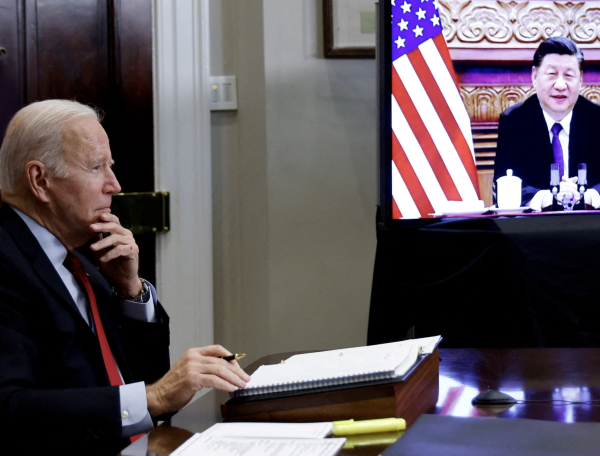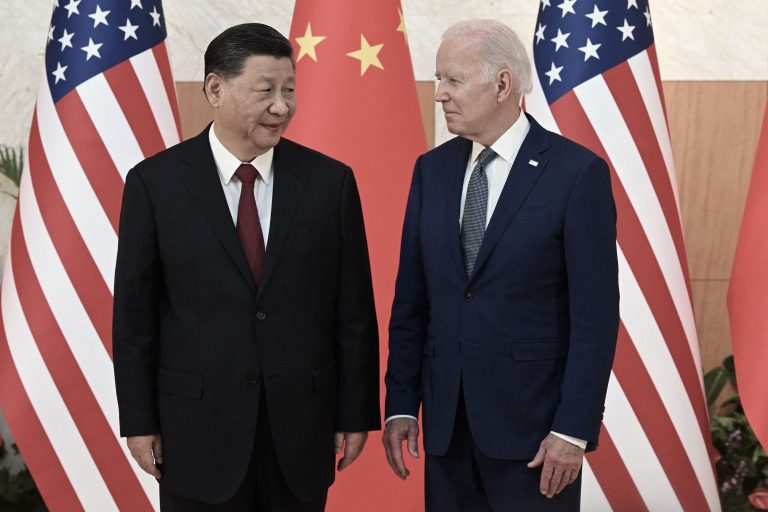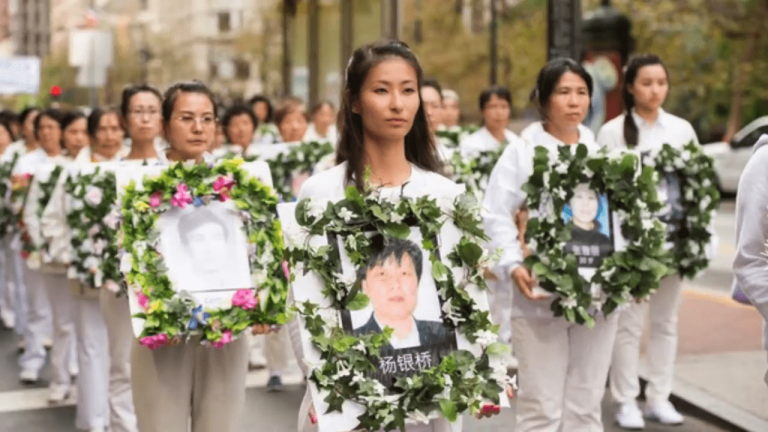On Nov. 14, U.S. President Joe Biden met face-to-face with his Chinese counterpart Xi Jinping for the first time since coming to office, and the two leaders spoke for about three hours on bilateral trade, Taiwan, the war in Ukraine, and other matters.
The meeting, which both leaders described their friendliness towards the other, took place ahead of the G20 summit in Bali, Indonesia. The last time Biden and Xi spoke in person was in 2017.
According to both the White House’s and Beijing’s official readouts of the meeting, the discussions were fruitful and, while Biden and Xi made clear their disagreements on many of the issues, they were open to greater engagement and cooperation between the world’s two most powerful countries.
Biden raised “objections to the [People’s Republic of China]’s coercive and increasingly aggressive actions toward Taiwan,” the White House readout of the meeting said, as well as “concerns about PRC practices in Xinjiang, Tibet, and Hong Kong, and human rights more broadly.”
PREVIOUS COVERAGE
- Biden Seeks to Build ‘Floor’ for China Relations in Xi Meeting
- Pelosi’s Taiwan Visit Sharpens Tensions at a Bad Time for Beijing
- China’s Reaction to Biden-Xi Call Exposes Its Fear of International Pressure Amid Russia-Ukraine War
At the same time, the American leader assured Xi that Washington’s “one-China” policy has not changed, meaning that the U.S. does not recognize an independent Taiwan, yet is against “any unilateral changes to the status quo by either side,” including military attack by Communist China. This comes despite many statements by Biden that the U.S. would respond militarily were Beijing to launch an invasion of the self-governing island.
Success
You are now signed up for our newsletter
Success
Check your email to complete sign up
The PRC’s official report on the Xi-Biden meeting called the discussion a “candid” exchange of ideas and quoted Xi as saying that “China-U.S. relations should not be a zero-sum game where one side out-competes or thrives at the expense of the other … The world is big enough for the two countries to develop themselves and prosper together.”
According to the White House, U.S. Secretary of State Antony Blinken will travel to China early next year as a follow-up to the meeting between the two national leaders.
Back to engagement?
According to Xi, China “does not seek to change the existing international order or interfere in the internal affairs of the United States, and has no intention to challenge or displace the United States.”

Both the U.S. and Chinese reports agreed that the world must work together to mitigate the threat of nuclear war. The White House readout said that Biden and Xi “reiterated their agreement that a nuclear war should never be fought and can never be won and underscored their opposition to the use or threat of use of nuclear weapons in Ukraine.”
Speaking at a press conference immediately following his meeting with Xi, Biden said that there was no need for an ideological conflict with China, and that the odds of military conflict over Taiwan were low.
“I absolutely believe there need not be a new Cold War … And I do not think there’s any imminent attempt on the part of China to invade Taiwan,” he said.
- Blinken Stresses ‘Rules-based Order’, Downplays Confrontation in China Policy Address
- Is China the Real Winner of the Russia-Ukraine War?
- Pentagon-funded University Hosts Economist Promoting Socialism as the Way to Counter China
Biden said that Xi appeared ready to compromise on “various issues” so as to ensure smooth bilateral relations.
“I think he understands that … how can I say this tactfully? I think the election held in the United States … has sent a very strong message around the world that the United States is ready to play,” Biden said, referring to the recent midterms in which the Democrats defended the Senate from falling to Republican control and blunted a “red wave” in the House.
Biden expressed hopes that the Chinese would help rein in nuclear-armed North Korea, and added that his biggest concern about his relationship with foreign leaders, particularly, Xi, was “misunderstanding about intentions or actions on each of our parts.”
Xi communicated Beijing’s readiness to deepen trade and other exchanges with the U.S., but stressed that “the Taiwan question is at the very core of China’s core interests, the bedrock of the political foundation of China-U.S. relations, and the first red line that must not be crossed in China-U.S. relations.”
He also criticized the Biden administration’s framing of the competition between the US and China as competition between “democracy” and “authoritarianism,” claiming that China had “Chinese-style democracy.”
US-China relations have been especially fraught since 2018, when then-U.S. President Donald Trump began a trade war to combat Beijing’s industrial espionage and unfair trade practices. The administration later took aim at China’s human rights abuses and then the Chinese Communist Party (CCP) itself, questioning the regime’s totalitarian ideology and fitness to rule the Chinese people.
The COVID-19 pandemic further paralyzed the bilateral relationship, with public anger over the CCP’s coverup of the initial outbreak and the alleged involvement of the Wuhan virology lab in the creation of the novel coronavirus.
Beijing’s strict “zero-COVID” policies also caused widespread human suffering and economic hardship for China, as well as global supply chain shocks that persist to this day.
Following the 20th Party Congress that saw Xi take a third term as CCP leader, the Party has moved to tone down the “zero-COVID” restrictions significantly, while not refuting the policy outright.














